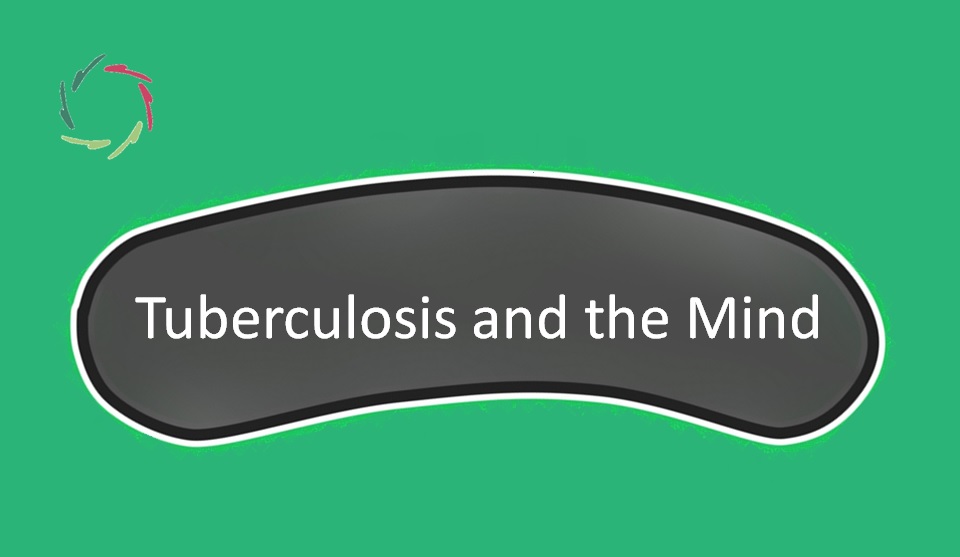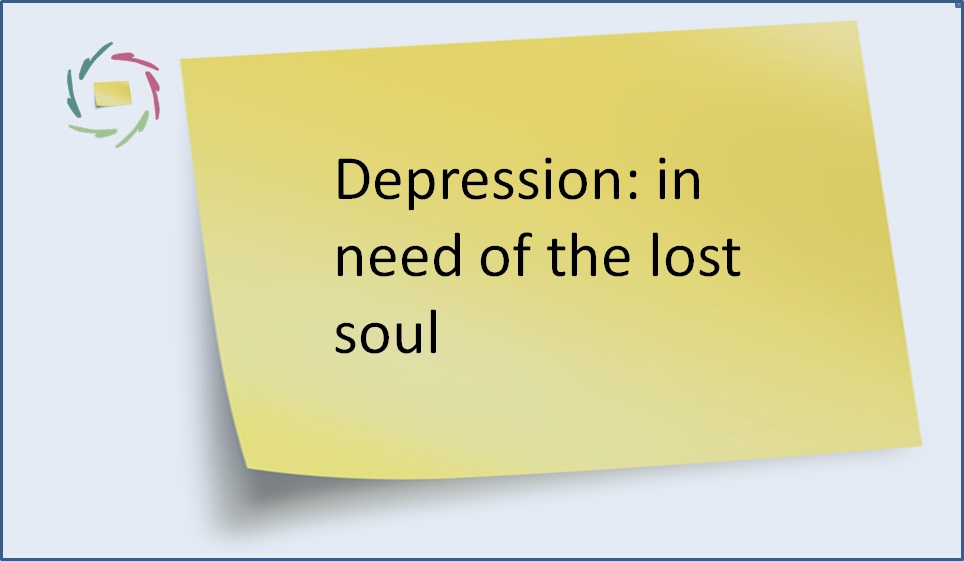Tuberculosis and the Mind

Suspected since millennia, nowadays backed up with scientific data, the influence of the mind on tuberculosis is a fine example of the complexity, as well as the importance to take this seriously into account in many domains.
Pertinently
Despite modern treatments, tuberculosis is still one of the leading causes of death worldwide, and – at that time of writing – the number one cause of death from infectious disease globally. [Floyd, 2018] There is also a dangerous increase of extensively drug-resistant tuberculosis. [Ding et al., 2020] New drugs are significantly more expensive, take four times longer, and have more side effects. [Sweetland et al., 2014]
Fortunately, I didn’t die from the tuberculosis I caught as a teenager after a few years of not being depressed, but far from happy. The cure took two years, at times of three medications.
Historically
Since ancient times (ancient Greece and India), an association between depressive mood and what-was-probably-tuberculosis has been suspected.
Till the middle of the 19th century, those who suffered from tuberculosis were deemed to have a markedly romantic sensibility, noble character, and the creative genius of intellectuals and artists. [Pôrto, 2007] In his book ‘Traité de l’auscultation médiate (1826),’ Laennec, the inventor of the stethoscope, observed that “among the possible causes of pulmonary phthisis, none is, to my knowledge, more certain than the sad passions, particularly if they are severe and of long duration.”
The discovery of the TB bacillus (Mycobacterium tuberculosis, the little sausage-like culprit) in 1882 changed this view. Fear of contagion then led to social stigma until this day.
Probably due to super-specialization and the narrowing of management foci, the association between tuberculosis and mental illness was hardly mentioned in science from the mid-1950s. [Sweetland et al., 2017]
In recent years, it regained recognition.
Presently
Recent studies find high rates of psychological distress among tuberculosis patients. [Peltzer et al, 2012] How can we interpret this? It’s difficult to see what came first. Also, which aspects of distress are most important?
Regarding depression, we have more clarity. “Depression is common in tuberculosis (TB) and associated with adverse outcomes through pathogenic mechanisms and impaired self-care behaviours including reduced treatment adherence. … Depression is independently associated with higher morbidity, mortality, drug resistance, risk of TB reactivation and community TB transmission.“ [Chandra, 2019] Studies show that adult tuberculosis patients have 3.68 higher odds for depressive episodes compared to adults without tuberculosis. Up to 70% of tuberculosis patients may present with depression. [Van Der Walt et al., 2021] A systematic review suggests that depressive symptoms are significantly associated with death during TB treatment (Odds Ratio = 4.26). [Ruiz-Grosso et al., 2020] Additionally, researchers find a clear dose-response relationship between depression and the subsequent risk of tuberculosis. [Oh et al., 2017]
The influence is bidirectional: “Tuberculous infection and/or disease reactivation may precipitate depression as a result of the inflammatory response and/or dysregulation of the hypothalamic-pituitary-adrenal axis. Clinical depression may also be triggered by TB-related stigma, exacerbating other underlying social vulnerabilities, and/or may be attributed to the side effects of anti-tuberculosis treatment.” [Sweetland et al., 2017] In both directions, pro-inflammatory cytokines are deemed to play a substantial role. [Ruiz-Grosso et al., 2020]
On top of this, several of the core symptoms of TB and depression overlap, such as fatigue. There are also common risk factors, including homelessness, HIV-positive serology, alcohol/substance abuse, and migrant status.
Immunologically
“Compromised immune function is implicated in both depression and TB, and the interrelationships are extremely complex, owing in part to different stages of immune responses to TB that comprise innate vs. cellular vs. humoral immunity, and differences between acute and chronic depression. Analogous to studies on cancer and human immunodeficiency virus (HIV) infection, in which depression has been associated with an inhibited response to pharmacological treatment and/or weakened response to vaccines, depression may worsen the prognosis for TB.” [Sweetland et al., 2017]
This is also relevant to the return of a previous infection, even after a long time: “This suppression of cellular immunity can result in TB reactivation and loss of TB containment in granulomas.” [Sweetland et al., 2017]
Interestingly, researchers have outlined how psychosocial stressors can contribute to the high variation in tuberculosis vaccine efficacy. [Dowd et al., 2018]
In short, this is complicated stuff.
It leads to tuberculosis and depression being seen as a syndemic ― defined by medical anthropologists as the “synergistic interaction of two or more coexistent diseases and resultant excess burden of disease.” [Singer et al., 2003] Something like a whirlpool. [see: “Whirlpool of Disease”] This blog has broader relevance than only tuberculosis.
Still, one needs to be cautious about the science, minding the gap as always. [see: “Mind the Gap“] One systematic review started with identifying 7687 studies comparing tuberculosis treatment outcomes among patients with and without mental disorders. Using stringent criteria, they finally included only 10 studies in their analysis, noting: “Our review suggests that mental disorders in TB patients increase the risk of poor TB outcomes, but pooled estimates were imprecise due to small number of eligible studies.” [Lee et al., 2020]
Ending tuberculosis
The very enlightening article of [Sweetland et al., 2017] is freely available at https://www.ncbi.nlm.nih.gov/pmc/articles/PMC5759333/. The explicit purpose of the review is “to reframe TB and depression comorbidity as the ‘TB–depression syndemic’, rather than two separate and co-occurring conditions.”
The WHO’s post-2015 Global End TB Strategy takes into account the often complex realities in which TB occurs, calling for ‘integrated patient-centered care’ to end the TB epidemic. The authors argue that the TB–depression syndemic approach is essential for the achievement of this goal.
The COVID from the past?
In a quote from [Singer et al., 2003]: “The appearance and global spread in recent years of wave after wave of new and renewed infectious diseases and their entwinement with each other and with the social conditions and biopsychological consequences of disparity, discrimination, and structural violence has produced a new significant threat to public health internationally.”
This may be a crucial lesson from tuberculosis: Everybody in science may be looking past the mind for a substantial time. Then it (re)appears due to new insights, epidemiology, and probably the fact that previous convictions and related status do not hamper a new generation of researchers.
But… how long must we wait in case of COVID?
References
[Chandra, 2019] Chandra M, Rana P, Chandra K, Arora VK. Tuberculosis – Depression syndemic: A public health challenge. Indian J Tuberc. 2019 Jan;66(1):197-202. doi: 10.1016/j.ijtb.2019.02.007. Epub 2019 Feb 26. PMID: 30878069.
[Ding et al., 2020] Ding C, Wang S, Shangguan Y, Feng X, Guo W, Shi P, Ji Z, Xu K. Epidemic Trends of Tuberculosis in China from 1990 to 2017: Evidence from the Global Burden of Disease Study. Infect Drug Resist. 2020 Jun 9;13:1663-1672. doi: 10.2147/IDR.S249698. PMID: 32606817; PMCID: PMC7293403.
[Dowd et al., 2018] Dowd JB, Fletcher HA, Boccia D. Social determinants and BCG efficacy: a call for a socio-biological approach to TB prevention. F1000Res. 2018 Feb 23;7:224. doi: 10.12688/f1000research.14085.1. PMID: 29904590; PMCID: PMC5974585.
[Floyd, 2018] Floyd K, Glaziou P, Zumla A, Raviglione M. The global tuberculosis epidemic and progress in care, prevention, and research: an overview in year 3 of the End TB era. Lancet Respir Med. 2018 Apr;6(4):299-314. doi: 10.1016/S2213-2600(18)30057-2. PMID: 29595511.
[Lee et al., 2020] Lee G, Scuffell J, Galea JT, Shin SS, Magill E, Jaramillo E, Sweetland AC. Impact of mental disorders on active TB treatment outcomes: a systematic review and meta-analysis. Int J Tuberc Lung Dis. 2020 Dec 1;24(12):1279-1284. doi: 10.5588/ijtld.20.0458. PMID: 33317672; PMCID: PMC7740071.
[Oh et al., 2017] Oh KH, Choi H, Kim EJ, Kim HJ, Cho SI. Depression and risk of tuberculosis: a nationwide population-based cohort study. Int J Tuberc Lung Dis. 2017 Jul 1;21(7):804-809. doi: 10.5588/ijtld.17.0038. PMID: 28633706.
[Peltzer et al, 2012] Peltzer K, Naidoo P, Matseke G, Louw J, McHunu G, Tutshana B. Prevalence of psychological distress and associated factors in tuberculosis patients in public primary care clinics in South Africa. BMC Psychiatry. 2012 Jul 27;12:89. doi: 10.1186/1471-244X-12-89. PMID: 22839597; PMCID: PMC3410814.
[Pôrto, 2007] Pôrto A. Representações sociais da tuberculose: estigma e preconceito [Social representations of tuberculosis: stigma and prejudice]. Rev Saude Publica. 2007 Sep;41 Suppl 1:43-9. Portuguese. doi: 10.1590/s0034-89102007000800007. PMID: 18038090.
[Ruiz-Grosso et al., 2020] Ruiz-Grosso P, Cachay R, de la Flor A, Schwalb A, Ugarte-Gil C. Association between tuberculosis and depression on negative outcomes of tuberculosis treatment: A systematic review and meta-analysis. PLoS One. 2020;15(1):e0227472. Published 2020 Jan 10. doi:10.1371/journal.pone.0227472
[Singer et al., 2003]Singer M, Clair S. Syndemics and public health: reconceptualizing disease in bio-social context. Med Anthropol Q. 2003 Dec;17(4):423-41. doi: 10.1525/maq.2003.17.4.423. PMID: 14716917.
[Sweetland et al., 2014] Sweetland A, Oquendo M, Wickramaratne P, Weissman M, Wainberg M. Depression: a silent driver of the global tuberculosis epidemic. World Psychiatry. 2014 Oct;13(3):325-6. doi: 10.1002/wps.20134. PMID: 25273311; PMCID: PMC4219079.
[Sweetland et al., 2017] Sweetland AC, Kritski A, Oquendo MA, Sublette ME, Norcini Pala A, Silva LRB, Karpati A, Silva EC, Moraes MO, Silva JRLE, Wainberg ML. Addressing the tuberculosis-depression syndemic to end the tuberculosis epidemic. Int J Tuberc Lung Dis. 2017 Aug 1;21(8):852-861. doi: 10.5588/ijtld.16.0584. PMID: 28786792; PMCID: PMC5759333.
[Van Der Walt et al., 2021] Van Der Walt M, Keddy KH. The Tuberculosis-Depression Syndemic and Evolution of Pharmaceutical Therapeutics: From Ancient Times to the Future. Front Psychiatry. 2021 Jun 1;12:617751. doi: 10.3389/fpsyt.2021.617751. PMID: 34140898; PMCID: PMC8203803.


